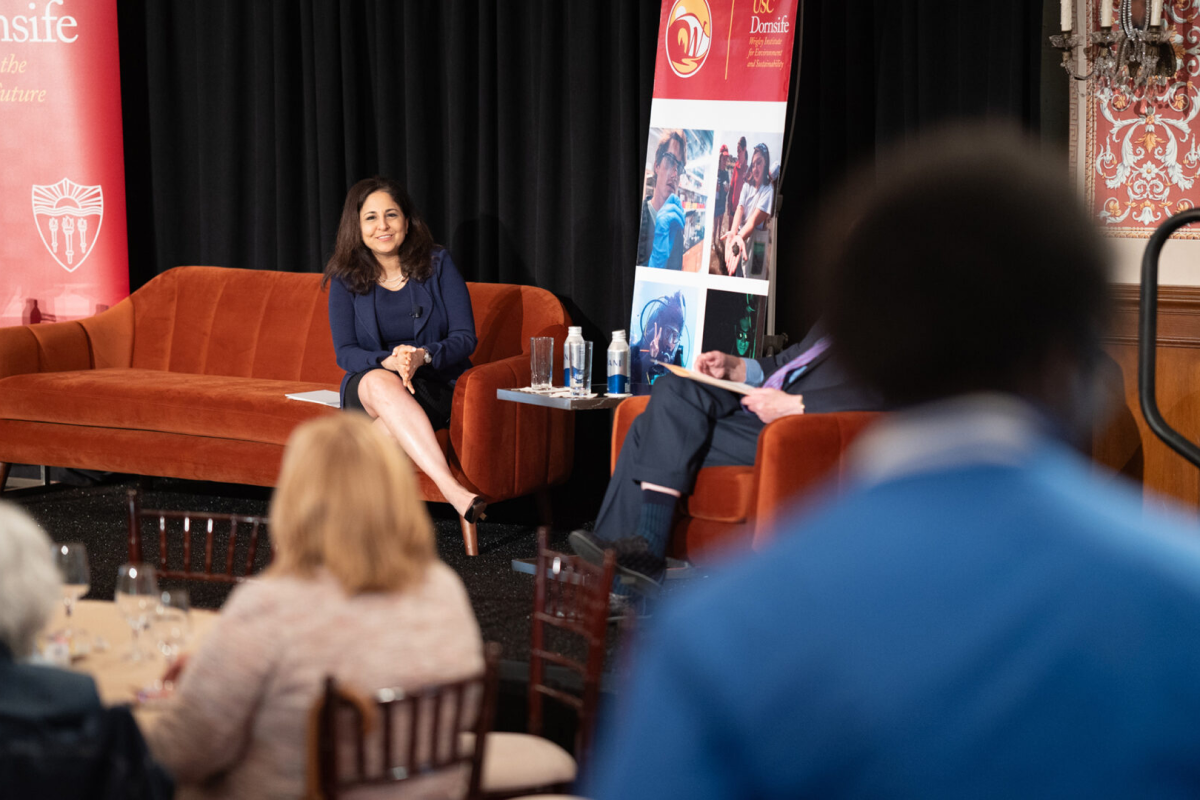Professor Amber D. Miller knows the many roadblocks to fighting climate change, including political and economic factors and a general resistance to change. But as dean of the USC Dornsife College of Letters, Arts and Sciences, Miller believes in the role universities can play in addressing the climate crisis.
“Universities are capable of bringing enormous intellectual firepower to the table across almost every discipline that you can imagine,” Miller said.
On Thursday, Miller helped kick off the fifth annual Climate Forward Conference at USC’s Town and Gown ballroom on the University Park Campus. The event featured a series of conversations advancing climate change issues and was sponsored by the USC Wrigley Institute for Environment and Sustainability and the USC Dornsife Center for the Political Future, in collaboration with Politico.
“We are not here at this university today in 2024 to debate whether or not climate change is happening. We are not even here to bemoan how bad the climate crisis is becoming,” Miller said. “We are here to bring together great minds from within academia, the public sector and government, business and industry, the nonprofit sector, law and journalism, to hear about new and exciting work being done to develop solutions that will work across the political aisle.”
USC President Carol Folt’s commitment
On a day that saw her hire a new men’s basketball coach, attend the first commemoration of Armenian History Month on campus, celebrate the 100th anniversary of USC’s graduate school, and stop by rapper Travis Scott’s sale of his new clothing line at the University Bookstore, USC President Carol Folt said her time at the Climate Forward Conference was “ending her day on the highest of high notes.”
Folt pointed to the USC Sustainability Hub, the USC Capital Campus in Washington, D.C., and overall student engagement with sustainability issues as proof that the university as a whole is all in on addressing the climate crisis.
“The area of sustainability or sustaining the planet, it’s so meaningful, so purposeful, and I think it’s really wonderful what we’re doing here today,” said Folt, an environmental scientist. “This is a full university effort that’s coming from people in every part of the institution.”
